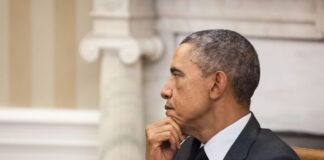The National Institute of Allergy and Infectious Diseases is run by Dr. Anthony Fauci. That indicates that managing a serious infectious disease outbreak is his job—his only job.
However, Fauci is allegedly now acknowledging that he and his team “botched” some parts of how to manage COVID once it arrived in the U.S. in March 2020, such as his vacillating on the effectiveness of masks and the protracted process it took to make quick tests available across the country.
“We were unaware that masks were useful outside of the medical environment. accessible everywhere.” According to Fox News, the doctor claimed that there was a lack of high-quality masks for those who were providing medical care for individuals in an interview that was aired this past week during the Texas Tribune Festival.
He also attributed the failure to attract commercial engagement in the experiments fast to others, adding, “They did not get it quickly.” He didn’t specify exactly who “they” were when he asserted that “they adhered to their own tests.”
Fauci stated, “There’s no reason to be wandering around with a mask,” back in March 2020.
The expert told CBS News that “while wearing a mask during an outbreak could make patients feel a small amount safer and sometimes even block a droplet, it does not offer the complete protection that many people believe it does.”
Fauci later asserted in January 2021 that using two masks is probably more efficient than just one. It “simply makes plain sense that it likely would be more successful if you have a physical covering with two layers on it,” he told NBC News.
At the festival, Fauci also acknowledged that he was aware that the “restrictive” COVID measures he supported would have “collateral negative repercussions” for both “the economy” and “schoolkids.”
Fauci, however, had some finger pointing to do and blamed his backtracking on the “divisive rhetoric” of “media platforms.”
When dealing with an evolving outbreak, uncertainty is inevitable, according to Fauci. “When you have a divide in a society in which every time you say anything, you have X number of individuals with social networks seeking to criticize it,” he added.
Naturally, the doctor continued, “when you make suggestions, if the main purpose when you’re faced with a crisis in which the hospitals in New York were overcrowded, critical care units were also being put in hallways, you must do something that’s pretty harsh.”
“And occasionally, severe measures have unintended negative effects, just as when operations are temporarily suspended, detrimental effects on the economy and students result. You are aware of that,” he said.
These content links are provided by Content.ad. Both Content.ad and the web site upon which the links are displayed may receive compensation when readers click on these links. Some of the content you are redirected to may be sponsored content. View our privacy policy here.
To learn how you can use Content.ad to drive visitors to your content or add this service to your site, please contact us at [email protected].
Family-Friendly Content
Website owners select the type of content that appears in our units. However, if you would like to ensure that Content.ad always displays family-friendly content on this device, regardless of what site you are on, check the option below. Learn More



